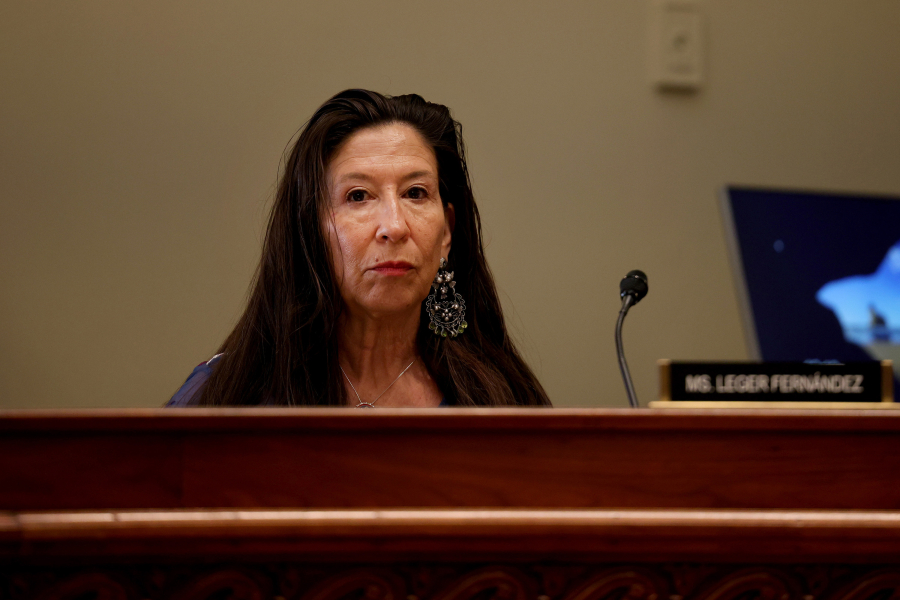WASHINGTON — First-term Rep. Teresa Leger Fernandez knows what it takes to sue a state over legislative maps that violate the Voting Rights Act — the New Mexico lawyer has done it.
“These cases could take months on a fast-track basis, where you do not sleep, you do not see your children for four months,” Fernandez said.
Before running for Congress in 2020, she represented Native American tribes in her state suing over Voting Rights Act violations in the legislative maps after the 2000 census — which resulted in changes to the maps.
Leger Fernandez is among a handful of House voting rights attorneys-turned-lawmakers helping to write the latest version of Democrats’ Voting Rights Act bill, which include provisions to push back on a swath of changes to election laws state legislatures across the country have passed.



